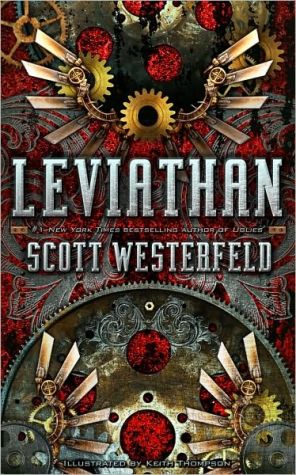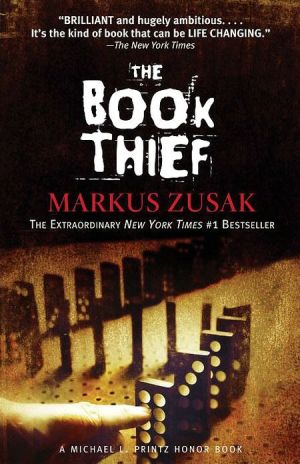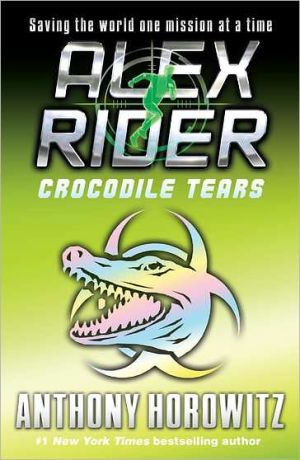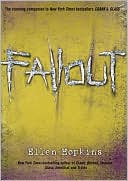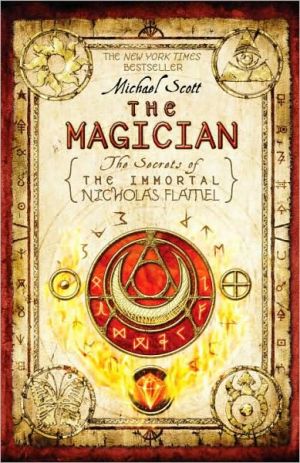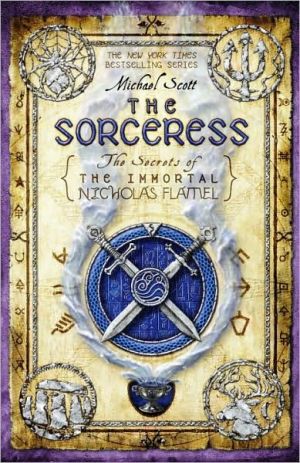Leviathan
It is the cusp of World War I, and all the European powers are arming up. The Austro-Hungarians and Germans have their Clankers, steam-driven iron machines loaded with guns and ammunition. The British Darwinists employ fabricated animals as their weaponry. Their Leviathan is a whale airship, and the most masterful beast in the British fleet.\ Aleksandar Ferdinand, prince of the Austro-Hungarian Empire, is on the run. His own people have turned on him. His title is worthless. All he has is a...
Search in google:
It is the cusp of World War I, and all the European powers are arming up. The Austro-Hungarians and Germans have their Clankers, steam-driven iron machines loaded with guns and ammunition. The British Darwinists employ fabricated animals as their weaponry. Their Leviathan is a whale airship, and the most masterful beast in the British fleet.Aleksandar Ferdinand, prince of the Austro-Hungarian Empire, is on the run. His own people have turned on him. His title is worthless. All he has is a battle-torn Stormwalker and a loyal crew of men.Deryn Sharp is a commoner, a girl disguised as a boy in the British Air Service. She's a brilliant airman. But her secret is in constant danger of being discovered.With the Great War brewing, Alek's and Deryn's paths cross in the most unexpected way...taking them both aboard the Leviathan on a fantastical, around-the-world adventure. One that will change both their lives forever.The Barnes & Noble ReviewWesterfeld paints his picture on a realpolitik canvas absent from Priest's domestic frame. The year is 1914, and war is imminent, upon the assassination of Archduke Franz Ferdinand and his wife. But aside from that, all is different in this alternate continuum. The Germans and their allies, known as "Clankers," have perfected super-mechanized craft of war. The British, or "Darwinists," rely on bioengineering: aerial whales, souped-up tiger draft beasts, and so forth. Garnering our attention among the Clankers is Prince Alek, only child of Franz and commoner Sophie, on the run from the Austrian Emperor. Among the Brits, Deryn, a young girl masquerading as a male midshipman in the imperial airforce. Their personalities are fierce and real, their inevitable meeting staged nicely and with zest.
ONE\ The Austrian horses glinted in the moonlight, their riders standing tall in the saddle, swords raised. Behind them two ranks of diesel-powered walking machines stood ready to fire, cannon aimed over the heads of the cavalry. A zeppelin scouted no-man’s-land at the center of the battlefield, its metal skin sparkling.\ The French and British infantry crouched behind their fortifications—a letter opener, an ink jar, and a line of fountain pens—knowing they stood no chance against the might of the Austro-Hungarian Empire. But a row of Darwinist monsters loomed behind them, ready to devour any who dared retreat.\ The attack had almost begun when Prince Aleksandar thought he heard someone outside his door… .\ He took a guilty step toward his bed—then froze in place, listening hard. Trees stirred in a soft breeze outside, but otherwise the night was silent. Mother and Father were in Sarajevo, after all. The servants wouldn’t dare disturb his sleep.\ Alek turned back to his desk and began to move the cavalry forward, grinning as the battle neared its climax. The Austrian walkers had completed their bombardment, and it was time for the tin horses to finish off the woefully outnumbered French. It had taken all night to set up the attack, using an imperial tactics manual borrowed from Father’s study.\ It seemed only fair that Alek have some fun while his parents were off watching military maneuvers. He’d begged to be taken along, to see the mustered ranks of soldiers striding past in real life, to feel the rumble of massed fighting machines through the soles of his boots.\ It was Mother, of course, who had forbidden it—his studies were more important than “parades,” as she called them. She didn’t understand that military exercises had more to teach him than musty old tutors and their books. One day soon Alek might be piloting one of those machines.\ War was coming, after all. Everyone said so.\ The last tin cavalry unit had just crashed into the French lines when the soft sound came from the hallway again: jingling, like a ring of keys.\ Alek turned, peering at the gap beneath his bed chamber’s double doors. Shadows shifted along the sliver of moonlight, and he heard the hiss of whispers.\ Someone was right outside.\ Silent in bare feet, he swiftly crossed the cold marble floor, sliding into bed just as the door creaked open. Alek narrowed his eyes to a slit, wondering which of the servants was checking on him.\ Moonlight spilled into the room, making the tin soldiers on his desk glitter. Someone slipped inside, graceful and dead silent. The figure paused, staring at Alek for a moment, then crept toward his dresser. Alek heard the wooden rasp of a drawer sliding open.\ His heart raced. None of the servants would dare steal from him!\ But what if the intruder were something worse than a thief? His father’s warnings echoed in his ears… .\ You have had enemies from the day you were born.\ A bell cord hung next to his bed, but his parents’ rooms were empty. With Father and his bodyguard in Sarajevo, the closest sentries were quartered at the other end of the trophy hall, fifty meters away.\ Alek slid one hand under his pillow, until his fingers touched the cold steel of his hunting knife. He lay there holding his breath, grasping the handle tightly, repeating to himself his father’s other watchword.\ Surprise is more valuable than strength.\ Another figure came through the door then, boots clomping, a piloting jacket’s metal clips jingling like keys on a ring. The figure tromped straight toward his bed.\ “Young master! Wake up!”\ Alek let go of the knife, expelling a sigh of relief. It was just old Otto Klopp, his master of mechaniks.\ The first figure began rifling through the dresser, pulling at clothes.\ “The young prince has been awake all along,” Wildcount Volger’s low voice said. “A bit of advice, Your Highness? When pretending to be asleep, it is advisable not to hold one’s breath.”\ Alek sat up and scowled. His fencing master had an annoying knack for seeing through deception.\ “What’s the meaning of this?”\ “You’re to come with us, young master,” Otto mumbled, studying the marble floor. “The archduke’s orders.”\ “My father? He’s back already?”\ “He left instructions,” Count Volger said with the same infuriating tone he used during fencing lessons. He tossed a pair of Alek’s trousers and a piloting jacket onto the bed.\ Alek stared at them, half outraged and half confused.\ “Like young Mozart,” Otto said softly. “In the arch-duke’s stories.”\ Alek frowned, remembering Father’s favorite tales about the great composer’s upbringing. Supposedly Mozart’s tutors would wake him in the middle of the night, when his mind was raw and defenseless, and thrust musical lessons upon him. It all sounded rather disrespectful to Alek.\ He reached for the trousers. “You’re going to make me compose a fugue?”\ “An amusing thought,” Count Volger said. “But please make haste.”\ “We have a walker waiting behind the stables, young master.” Otto’s worried face made an attempt at a smile. “You’re to take the helm.”\ “A walker?” Alek’s eyes widened. Piloting was one part of his studies he’d gladly get out of bed for. He slipped quickly into the clothes.\ “Yes, your first night lesson!” Otto said, handing Alek his boots.\ Alek pulled them on and stood, then fetched his favorite pilot’s gloves from the dresser, his footsteps echoing on the marble floor.\ “Quietly now.” Count Volger stood by the chamber doors. He cracked them and peered out into the hall.\ “We’re to sneak out, Your Highness!” Otto whispered. “Good fun, this lesson! Just like young Mozart!”\ The three of them crept down the trophy hall, Master Klopp still clomping, Volger gliding along in silence. Paintings of Alek’s ancestors, the family who had ruled Austria for six hundred years, lined the hallway, their subjects staring down with unreadable expressions. The antlers of his father’s hunting trophies cast tangled shadows, like a moonlit forest. Every footstep was magnified by the stillness of the castle, and questions echoed in Alek’s mind.\ Wasn’t it dangerous, piloting a walker at night? And why was his fencing master coming along? Count Volger preferred swords and horses over soulless mechaniks, and had little tolerance for commoners like old Otto. Master Klopp had been hired for his piloting skills, not his family name.\ “Volger …,” Alek began.\ “Quiet, boy!” the wildcount spat.\ Anger flashed inside Alek, and a curse almost burst from his mouth, even if it ruined their stupid game of sneaking out.\ It was always like this. To the servants he might be “the young archduke,” but nobles like Volger never let Alek forget his position. Thanks to his mother’s common blood, he wasn’t fit to inherit royal lands and titles. His father might be heir to an empire of fifty million souls, but Alek was heir to nothing.\ Volger himself was only a wildcount—no farmlands to his name, just a bit of forest—but even he could feel superior to the son of a lady-in-waiting.\ Alek managed to stay quiet, though, letting his anger cool as they stole through the vast and darkened banquet kitchens. Years of insults had taught him how to bite his tongue, and disrespect was easier to swallow with the prospect of piloting ahead.\ One day he would have his revenge. Father had promised. The marriage contract would be changed somehow, and Alek’s blood made royal.\ Even if it meant defying the emperor himself.\ © 2009 Scott Westerfeld
\ From Barnes & NobleOn the eve of World War I, conflicts in Europe are coming to a bloody boil. On every side, governments are frantically arming themselves with new weaponry and sorting out likely friends and foes. On the whole continent, perhaps the oddest pairing of all is the makeshift alliance bred in danger between Aleksandar Ferdinand, fugitive prince of the Austro-Hungarian Empire, and Deryn Sharp, a daring British airwoman disguised as a boy. Both have secrets that they must conceal and now face dangers of literally global proportions. A steampunk series by the author of the Uglies and the Midnighters series.\ \ \ \ \ Austin GrossmanScott Westerfeld's Leviathan is a tightly paced young adult novel set in an alternate version of the First World War and a welcome addition to the steampunk genre…Westerfeld's imagery is enhanced by Keith Thompson's old-fashioned black-and-white illustrations, which lend an extra dimension of reality to this world. And the Darwinist and Clanker jargon crackles with an authentically techie feel.\ —The New York Times\ \ \ Publishers WeeklyLaunching a planned four-book series, Westerfeld (the Uglies series) explores an alternate 1914 divided between Darwinists, who advocate advanced biotechnology, and Clankers, masters of retrofuturistic mechanical engineering. Austria-Hungary's Prince Aleksandar is whisked away into the night by trusted advisers; he soon learns that his parents, Archduke Franz Ferdinand and Countess Sophie, have been murdered and that he has been targeted by prowar Germans. Half a continent away, Deryn Sharp successfully passes as a young man to join the British Air Service; her bravery during a catastrophic first flight aboard a genetically enhanced jellyfish (“The creatures' fishy guts could survive almost any fall, but their human passengers were rarely so lucky”) earns Deryn a post on the living airship Leviathan. The fortunes of war lead Aleksandar and Deryn to the Swiss Alps, where they must cooperate or face destruction at the hands of the Germans. The protagonists' stories are equally gripping and keep the story moving, and Thompson's detail-rich panels bring Westerfeld's unusual creations to life. The author's fully realized world has an inventive lexicon to match—readers will be eager for the sequels. Ages 12–up. (Oct.)\ \ \ \ \ Children's Literature\ - Judy Silverman\ This is a combination historical novel/fantasy-science fiction coming-of-age story. In 1914, Europe is split between "Darwinists" and "Clunkers"—Britain and her allies, and Germany and hers. The Darwinists have used what they call "life-threads" to clone extinct animals and manipulate genetics to the point where whales can fly and lizards can communicate (after a fashion) with people. The Clunkers consider that all of this is blasphemous and evil. So, we begin with the Clunkers. Aleksander, called Alek, is the son of the Crown Prince of the Austro-Hungarian Empire. His mother is a commoner, so Alek "has had enemies since the day he was born." But it is July 1914, and his parents have just been assassinated. Fortunately, he has some friends in the Army who were privy to his father's plans for just this situation. So while he feels that he has been kidnapped, he is being protected—but from whom? Can he trust Master Klopp or Count Volger? The pattern of the book is established here, as we are introduced to Deryn Sharp, a British girl who would really rather be a boy. Her father has died recently in a flying accident, and she knows that she would be a terrific soldier or sailor—and her older brother decides to help her. She cuts off her hair, puts on boys clothes, and enlists in the Navy as Midshipman Dylan Sharp. Every few chapters we switch viewpoints, and the characters are so real that we really do not know whose side we should be on. By the end of the book we are not even sure who will win the war—but it is all right because there will be another volume to the series. A terrific read. Reviewer: Judy Silverman\ \ \ \ \ VOYA\ - Timothy Capehart\ Awakened in the middle of the night, fifteenyear- old Prince Aleksandar, son of Archduke Ferdinand of the Austro-Hungarian Empire, at first thinks he is headed out for some night training in one of the family's Stormwalker war machines. His teachers, however, have entirely different motives for getting the Prince out of the castle. Alek's parents have been assassinated, and his life is in danger. Meanwhile fifteen-year-old Deryn Sharp, who studied flight with her now dead father, is so desperate to continue her studies that she has convinced her brother to help her pass as "Dylan" and join the British Air Service. Unlike the "Clankers" of Germany and Austria who depend on machines, the Darwinists of France and England use fabricated beasts (genetically engineered animals) in all aspects of their lives. On a short trip up in a hydrogen-breathing, balloon-like Huxley (a huge animal based on a jellyfish), Deryn flies off course and ends up joining the crew of the whale ship Leviathan. Through battle and circumstance, the two end up becoming friends and find their missions and their lives entwined in this first volume of a new series by the author of the popular Uglies series. Set in 1914, alternate-history science fiction combines well with Thompson's fabulously detailed illustrations but gets a bit of its base science wrong. The inventiveness of the milieu, however, more than makes up for it. The characters are not as engaging or the story as compelling as the many battle sequences, but there is much here to interest fans of Reeve's Hungry Cities series or the less-juvenile fantasies of Hayao Miyazaki. Reviewer: Timothy Capehart\ \ \ \ \ School Library JournalGr 7 Up—This is World War I as never seen before. The story begins the same: on June 28, 1914, Archduke Franz Ferdinand and his wife are assassinated, triggering a sequence of alliances that plunges the world into war. But that is where the similarity ends. This global conflict is between the Clankers, who put their faith in machines, and the Darwinists, whose technology is based on the development of new species. After the assassination of his parents, Prince Aleksandar's people turn on him. Accompanied by a small group of loyal servants, the young Clanker flees Austria in a Cyklop Stormwalker, a war machine that walks on two legs. Meanwhile, as Deryn Sharp trains to be an airman with the British Air Service, she prays that no one will discover that she is a girl. She serves on the Leviathan, a massive biological airship that resembles an enormous flying whale and functions as a self-contained ecosystem. When it crashes in Switzerland, the two teens cross paths, and suddenly the line between enemy and ally is no longer clearly defined. The ending leaves plenty of room for a sequel, and that's a good thing because readers will be begging for more. Enhanced by Thompson's intricate black-and-white illustrations, Westerfeld's brilliantly constructed imaginary world will capture readers from the first page. Full of nonstop action, this steampunk adventure is sure to become a classic.—Heather M. Campbell, formerly at Philip S. Miller Library, Castle Rock, CO\ \ \ \ \ Kirkus ReviewsThe fate of many rests in the hands of an Austrian schoolboy and a British airman, both in disguise. Alek is the son of the recently assassinated Archduke Franz Ferdinand, hiding from European nations hostile to his father. Midshipman Dylan is really Deryn, a girl passing as a boy in order to serve in the British Air Service. Alek has fled home in a steam-powered Stormwalker, one of the great manned war machines of the Central Powers. Meanwhile, Deryn's berth is on a massive airbeast, a genetically engineered hydrogen-breather, one of the Darwinist ships of the Allied Powers. The growing hostilities of what is soon to become the Great War throw the two together, and Darwinists and Clankers must work together if they all want to survive. Two Imperial forces meet, one built with steam and the other built with DNA, producing rich, vivid descriptions of the technologies that divide a continent. The setting begs comparisons to Hayao Miyazaki, Kenneth Oppel and Naomi Novik, but this work will stand-or fly-on its own. (Science fiction. 12-15)\ \ \ \ \ The Barnes & Noble ReviewFrom Paul Di Filippo's "SPECULTATOR" column on The Barnes & Noble Review\ \ Has steampunk jumped Captain Nemo's clockwork shark yet?\ The genre -- succinctly described as a mix of archaic tech (either real or fanciful), the supernatural, and postmodern metafictional tricksterism, set in the consensus historical past or alternate timelines -- was first christened in 1987, a lifetime ago as cultural and literary fads are measured, in a letter to Locus magazine from the writer K. W. Jeter. Of course, the actual roots of the form extend back even further, perhaps as early as 1965, when a certain television show named The Wild, Wild West debuted.\ Some literary styles and tropes wane with their cultural moment, but others have proved exceedingly long-lived, with writers continually discovering unexplored narrative possibilities within elastic bounds. Perhaps the best example is the Gothic, still with us today, and flourishing, despite being a couple of centuries old.\ But steampunk has exfoliated beyond the merely literary, into the daily lives of its fans. Like Civil War re-enactors or medievalist members of the Society for Creative Anachronism, "steampunks" now include those for whom the novels and stories have been superseded by cosplay, crafting, music, partying, artwork, manga, anime, feature films, and the creation of props or working hardware. For every reader and writer of steampunk fiction, there are probably hundreds or thousands of other activists who gleefully embrace some non-written manifestation of the steampunk ethos.\ Generally speaking, by the time a subculture such as steampunk secures the attention of major media, resulting in extensive coverage of the craze, said phenomenon is already on the way out. But despite numerous and growing features about steampunk in the national press, such does not seem to be the case, at least in terms of fiction. The juggernaut that is steampunk, like Dr. Loveless's giant mechanical spider in the 1999 film version of The Wild, Wild West, seems capable of crushing all naysayers.\ Yet what of the literature itself -- now transformed into something of an appendage -- that spawned the movement? Has it exhausted all the radium bullets in its Gatling gun, or is fresh work still capable of surprising the reader?\ Well, the latter half of 2009 proved to be a fine period for steampunk, and 2010 seems to be starting out likewise, with a new novel that manages to do some uncanny things with the genre. (As well, readers should be alerted to Steampunk Reloaded, a forthcoming anthology compiled by Ann and Jeff Vandermeer.)\ Cherie Priest's brand of steampunk featured an adolescent protagonist whose actions were circumscribed within a tiny venue, in a book that nonetheless sported a fully adult texture. Contrastingly, in Leviathan, Scott Westerfeld's youthful, globe-hopping heroes star in a book staunchly aimed at a big-screen-friendly YA audience, mightily abetted by gorgeous B&W illustrations from Keith Thompson. That's merely the beginning of the differences that serve to illustrate the wide range of steampunk.\ Westerfeld paints his picture on a realpolitik canvas absent from Priest's domestic frame. The year is 1914, and war is imminent, upon the assassination of Archduke Franz Ferdinand and his wife. But aside from that, all is different in this alternate continuum. The Germans and their allies, known as "Clankers," have perfected super-mechanized craft of war. The British, or "Darwinists," rely on bioengineering: aerial whales, souped-up tiger draft beasts, and so forth. Garnering our attention among the Clankers is Prince Alek, only child of Franz and commoner Sophie, on the run from the Austrian Emperor. Among the Brits, Deryn, a young girl masquerading as a male midshipman in the imperial airforce. Their personalities are fierce and real, their inevitable meeting staged nicely and with zest.\ Cleverly overlaying Bruce Sterling's famous Mechanist/Shaper dichotomy upon twentieth-century history in a warping fashion, carefully allotting sympathy to both sides of the conflict, staging both small- and large-scale scenes with finesse and aplomb, Westerfeld steadily builds a world that we soon accept as totally real and palpable. His inventiveness with the details of the competing imaginary technologies renders the rival paradigms sharp and bristly, with the complex stakes involved plain to see.\ The first in a series, Leviathan, as the author says in his Afterword, does indeed truly utilize steampunk's ability to address both past and future simultaneously.\ \ \
